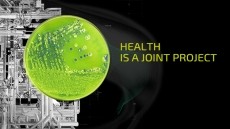Raylo praises pH sensor for "radical process improvement"
up to 20 per cent and as a result saved hundreds of thousands of
dollars per year after it installed new pH sensing technology.
The firm, a Canadian-based arm of Degussa's Fine Chemicals Division, said it has also been able to reduce equipment and maintenance costs.
Raylo operates as a custom manufacturer of specialty chemicals, active pharmaceutical ingredients (APIs) and advanced intermediates for biopharmaceutical companies and said it implemented the new pH sensors after launching an attempt to improve the efficiency of its manufacturing processes and assure consistent product quality in order to maximise batch yields.
"Measuring pH was a problem at that time because of the unreliability of our pH sensors. They simply could not hold up under the aggressive chemicals that we use, such as hydrobromic acid," said Rob Pastushak, senior technical supervisor of pharmaceutical manufacturing for Raylo.
"The organic solvent constituent caused the probe's o-rings to degrade during the most critical point of the process. In many cases, three probes, at approximately $600 per probe, would fail during processing just one batch."
Because of the unreliability of these devices, Pastushak said its staff were left with no choice but to confirm pH measurements on a bench top meter in their lab, however, this cumbersome process made production extremely inefficient.
"When you process 3,000 to 5,000 litres and add five to ten kilos of caustic solution at a time, it might take 20 to 40 lab tests to ensure the pH is right during pH adjustment," said Pastushak.
Given the competitive nature of the custom manufacturing business and the tight margins that exist in the industry, this was clearly unacceptable.
"Batches typically range from 300 to 900 kilograms and even the slightest variation in yield can have a huge impact on our bottom line. A one or two per cent increase in the target commercial yield is translated as 100 per cent pure profit. Likewise, a consistent loss of one or two per cent of the commercial target yield translates as lost profit," said Pastushak.
"You don't stay in business long with this type of performance."
To resolve the pH measurement issue, Pastushak said the firm researched several probes and finally settled on the Foxboro 871PH Series sensor, a rebuildable pH probe from the Measurements & Instruments Division of Invensys Process Systems.
"We found many vendors that offered quality sensors, but Foxboro was the only one that could provide a robust design that could stand up to all the reagents and solvents in our solutions," said Pastushak.
"The 871's Ryton polymer plastic construction is compatible with all the materials in our process and is just what the doctor ordered for our demanding application."
Raylo said that using Foxboro's sensors has enabled it to produce "more batches in the same period of time."
"The 871 sensor allows a pH adjustment to be completed in only three hours - a radical improvement over the 18 to 24 hours it previously took," said Pastushak.
"In addition, we no longer have to take 40 samples to the lab to confirm measurement accuracy - we now only take one, as a matter of quality assurance protocol," he said.
"Previously, every time we grabbed a lab sample, we had to put the process on hold until we got the results back. This is significant when you consider not only the yield impact but the cost of a process hour."
The also firm said that the reduction in the number of confirmation measurements has improved the safety of its personnel by reducing the number of times its technicians need to open the line to manually obtain samples.
Overall, Raylo has praised the sensor, stating: "The faster, real-time readings have helped us reduce manufacturing cycles by up to 20 per cent, which increases capacity and competitiveness."
"Yields have increased and cycle times have been shortened. When you add-in the increase in quality, the improved pH readings by one sensor can be worth hundreds of thousands of dollars per year."














